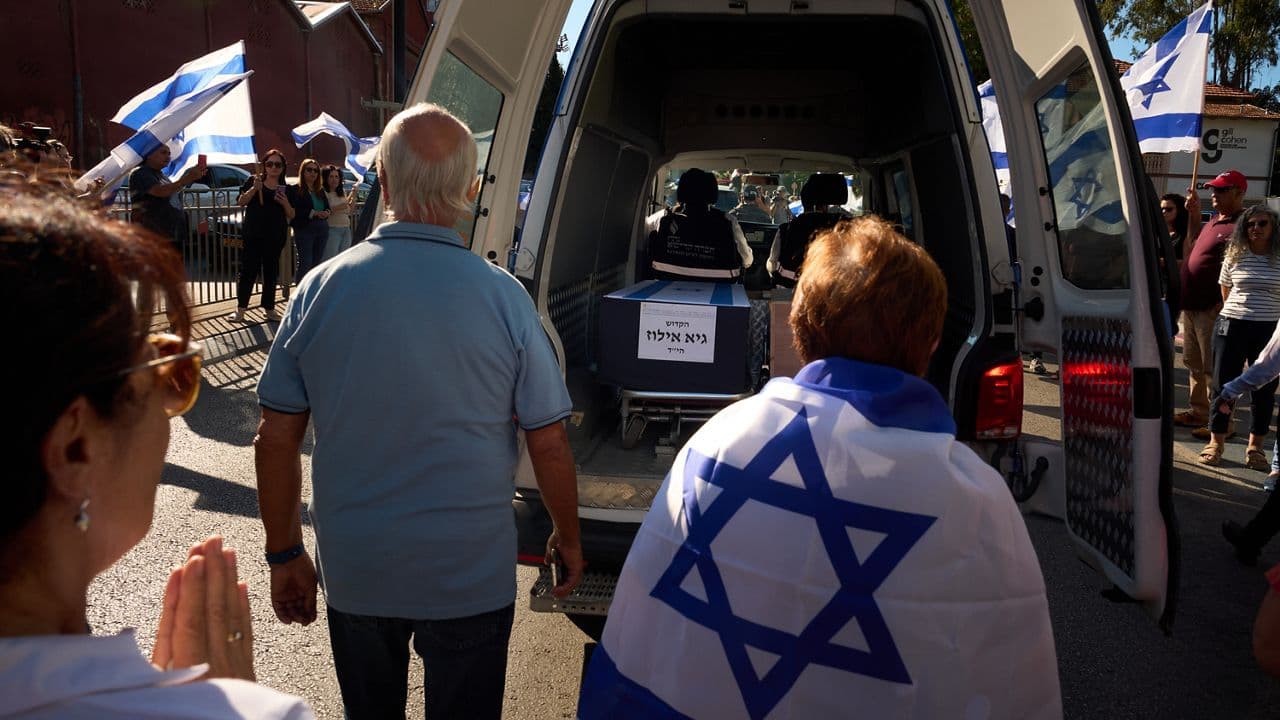We're loading the full news article for you. This includes the article content, images, author information, and related articles.
The identification of Eliyahu Margalit's remains underscores the ongoing challenges in recovering all hostages and bodies from Gaza, highlighting the complexities of the current ceasefire agreement.

The Israeli military has identified the body of Eliyahu “Churchill” Margalit, 75, as the tenth deceased hostage recovered from the Gaza Strip. His remains were handed over to the International Committee of the Red Cross (ICRC) by Hamas late on Friday, October 17, 2025, and subsequently transferred to Israeli authorities. The identification was confirmed after his remains were sent to the Ministry of Health’s National Center for Forensic Medicine in Israel.
Margalit was among those abducted from Kibbutz Nir Oz during the Hamas assault on southern Israel on Saturday, October 7, 2023. His death was initially confirmed in December 2023, though his body remained in Gaza until this recent handover. His daughter, Nili Margalit, was also kidnapped during the October 7 attack but was released in November 2023 as part of an earlier deal.
The October 7, 2023, attack saw Hamas militants infiltrate southern Israel, killing approximately 1,200 people and taking 251 hostages into Gaza. Kibbutz Nir Oz was particularly hard-hit, with 47 people killed and 76 taken hostage. The ensuing conflict has led to widespread destruction in Gaza and a significant humanitarian crisis.
The return of hostages, both living and deceased, has been a central point of contention in ceasefire negotiations between Israel and Hamas. The current ceasefire agreement, which took effect on October 12-13, 2025, included provisions for the release of all remaining living Israeli hostages and the return of bodies of those who died in captivity.
The International Committee of the Red Cross (ICRC) has played a crucial role as a neutral intermediary in facilitating the exchange of hostages and detainees between Israel and Hamas. Their involvement ensures the humanitarian aspect of the transfers, though they are not involved in the political negotiations of the ceasefire terms.
Delays in the return of deceased hostages have been a point of dispute. Hamas has cited technical problems, including the need for heavy machinery and excavating equipment to locate bodies buried under rubble, particularly in areas like Hamad City in Khan Younis, which experienced heavy bombardment by Israeli forces. Israel, however, has insisted that Hamas knows the whereabouts of the bodies and must uphold its commitments under the ceasefire deal.
The families of the hostages have been persistent advocates for their loved ones' return. The Hostage Families Forum has been actively involved in raising awareness and pressing for the implementation of agreements.
The ongoing delays and disputes surrounding the return of deceased hostages threaten the fragility of the current ceasefire agreement. US President Donald Trump had warned that Israel would resume military operations if Hamas failed to uphold its end of the deal regarding the return of all hostage bodies. The challenges in locating and retrieving bodies, exacerbated by the extensive destruction in Gaza, underscore the difficulties in fully implementing the agreement.
Hamas has stated that some remains are in tunnels or buildings destroyed by Israeli actions, requiring heavy machinery that has not been permitted into Gaza. Israel, conversely, has accused Hamas of deliberately delaying the process. The exact locations of all remaining bodies and the logistical challenges of their retrieval remain points of contention.
The international community will be closely watching for the full implementation of the ceasefire agreement, particularly the return of the remaining 18 deceased hostages. The provision of heavy machinery for rubble clearance in Gaza and continued cooperation between all parties and the ICRC will be crucial for these efforts.
The broader context of the Israel-Hamas conflict includes ongoing discussions about the reopening of the Rafah crossing, the entry of humanitarian aid, and the future governance and reconstruction of Gaza.
Keep the conversation in one place—threads here stay linked to the story and in the forums.
Sign in to start a discussion
Start a conversation about this story and keep it linked here.
Other hot threads
E-sports and Gaming Community in Kenya
Active 9 months ago
The Role of Technology in Modern Agriculture (AgriTech)
Active 9 months ago
Popular Recreational Activities Across Counties
Active 9 months ago
Investing in Youth Sports Development Programs
Active 9 months ago